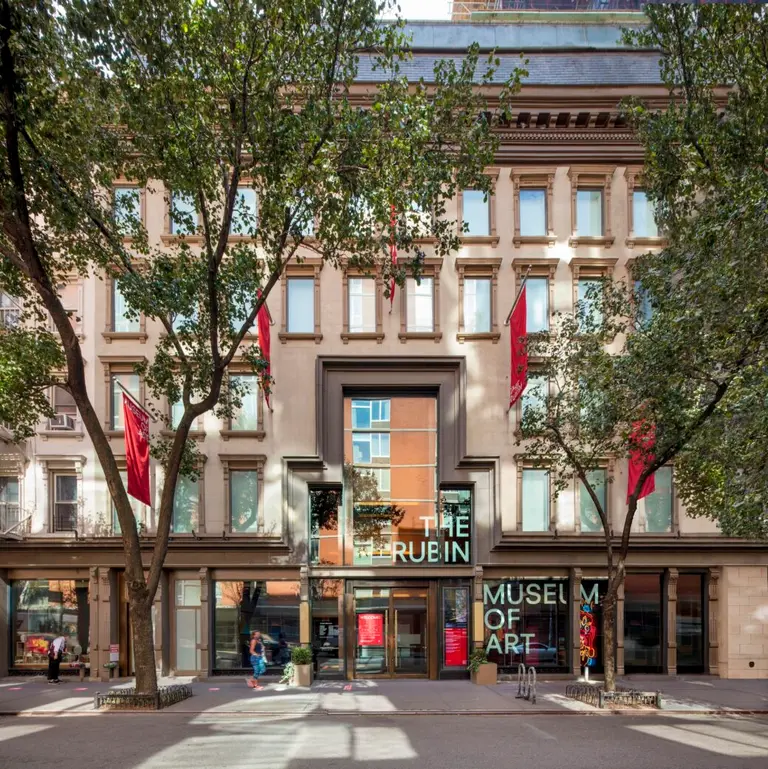300+ restaurants sign on for $2B lawsuit over New York’s indoor dining ban

By Pictures of Money via Flickr cc
The plot continues to thicken over when and if indoor dining will resume in New York City, with New Jersey starting indoor restaurant operations this Friday and Mayor de Blasio hinting that it won’t return in the city until a COVID vaccine is approved. And now, a group of 337 restaurants has signed on to a lawsuit that is seeking $2 billion from the city and state. As Crain’s reported, the main plaintiff is 28-year-old Queens Italian restaurant Il Bacco, which is just 500 feet over the Nassau County border where restaurants were allowed to reopen indoor dining.
“If a restaurant patron travels five hundred feet east or one city block east from [Il Bacco], patrons are in Nassau County and can enjoy indoor dining in an air conditioned room. According to Governor Cuomo, it is dangerous to eat at [Il Bacco] in Little Neck, Queens, but it is safe to dine indoors a few hundred feet east,” says the lawsuit, which was filed on Friday and says the indoor dining ban violates the Fourth and Fifth amendments.
Indoor dining–operating at a reduced capacity with COVID guidelines in place–was part of the state’s phase four of reopening. When all the other nine regions hit this benchmark, they were allowed to begin indoor dining. In New York City, however, it was put on hold indefinitely, and both the governor and the mayor have yet to offer any concrete information on when restaurants in the five boroughs can expect it to return.
James Mermigis, the attorney representing Il Bacco, told Crain’s, “In my opinion, there is no science. These are just speculative ideas on the part of the governor and the mayor, and we have to force their hand because too many businesses are losing everything… We’re at a point where if you don’t file a lawsuit, nothing’s gonna get done.”
(Mermigis also recently represented a group of 1,500 gyms that sued the state over not being able to reopen. Shortly after the suit was filed, Governor Cuomo announced that gyms across the state could begin reopening at a reduced capacity.)
Upon hearing about New Jersey’s plans, Andrew Rigie, executive director of the NYC Hospitality Alliance (which threatened its own lawsuit recently), released a statement that echoes Mermigis:
With indoor dining resuming soon in New Jersey, New York City will be surrounded by indoor dining but locked out from participating at significant economic peril. The situation is at a boiling point and our government leaders must immediately develop a plan to reopen indoor dining across the five boroughs, like what’s been provided to restaurants throughout the rest of the state. Otherwise, our city’s economic crisis will reach a point it cannot come back from, with thousands of more restaurants permanently closing and likely more lawsuits filed against the government.
As Gothamist pointed out, a survey by the New York State Restaurant Association found that 90 percent of restaurants
are unlikely to be profitable in the next six months without government assistance. This, of course, is a much larger topic, but it feeds into the need for more information about indoor dining.
In response to New Jersey’s announcement yesterday, Governor Cuomo echoed what Mayor de Blasio has previously said–that a decision will likely come after the administrations see how things go with schools reopening. But just today, the reopening date for NYC public schools was pushed to September 21.
The governor and the mayor have backed up their indoor dining ban by citing rising cases across the country, many of which are tied to restaurants and other indoor gatherings, a lack of compliance in the five boroughs, and the city’s general density. But the infection rate in New York City remains just as low as the rest of the state, despite these factors.
Richard Azzopardi, Senior Advisor to Governor Cuomo, responded to the Post about the lawsuit: “The bottom line is that New York City was hit the hardest and the Governor took action to reduce infections in the areas that were driving clusters in other large cities around the country… We understand that some people are unhappy, but better unhappy than sick or worse.”
The other defendants named in the case, Mayor de Blasio and the New York Attorney General, declined to comment.
RELATED:





























